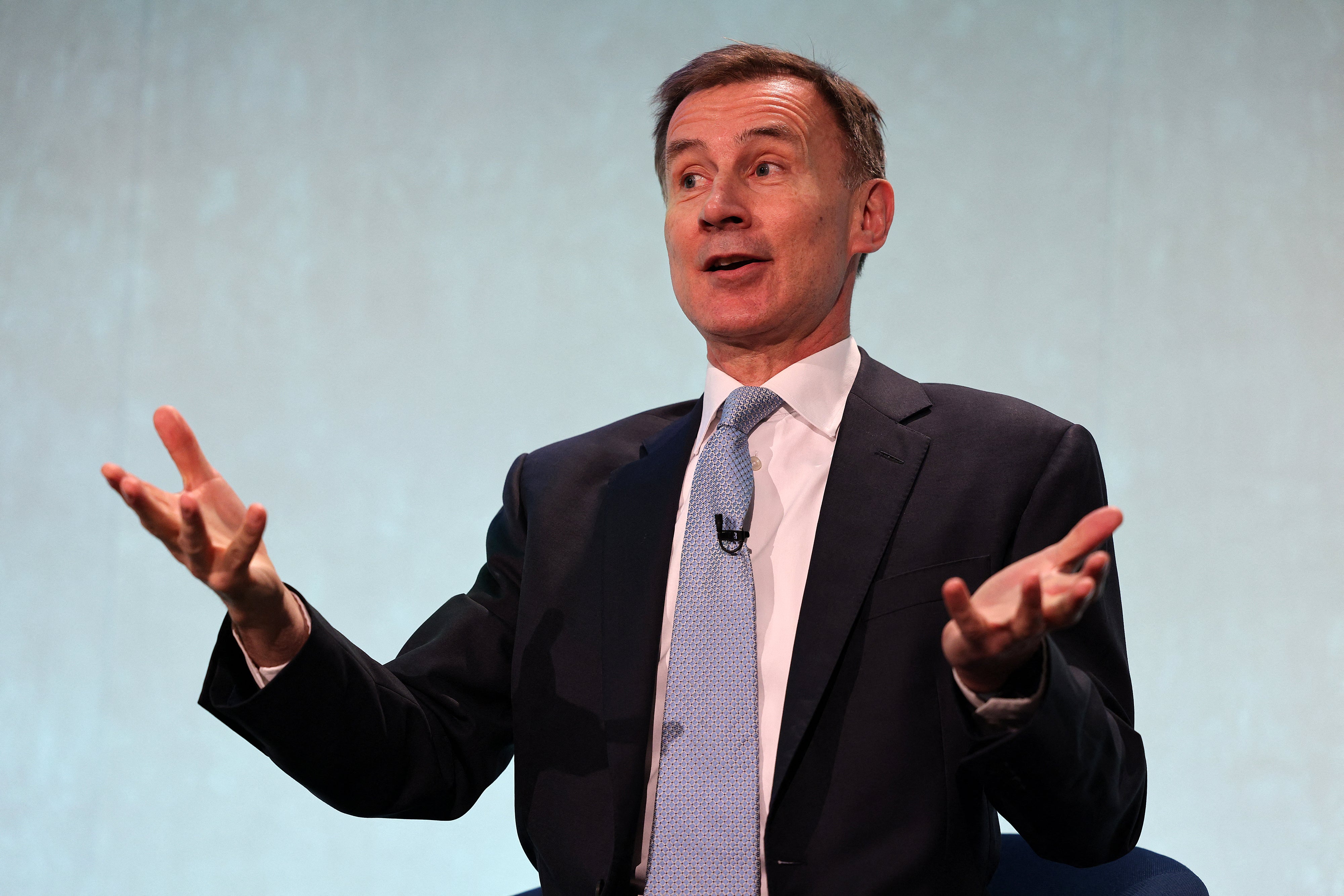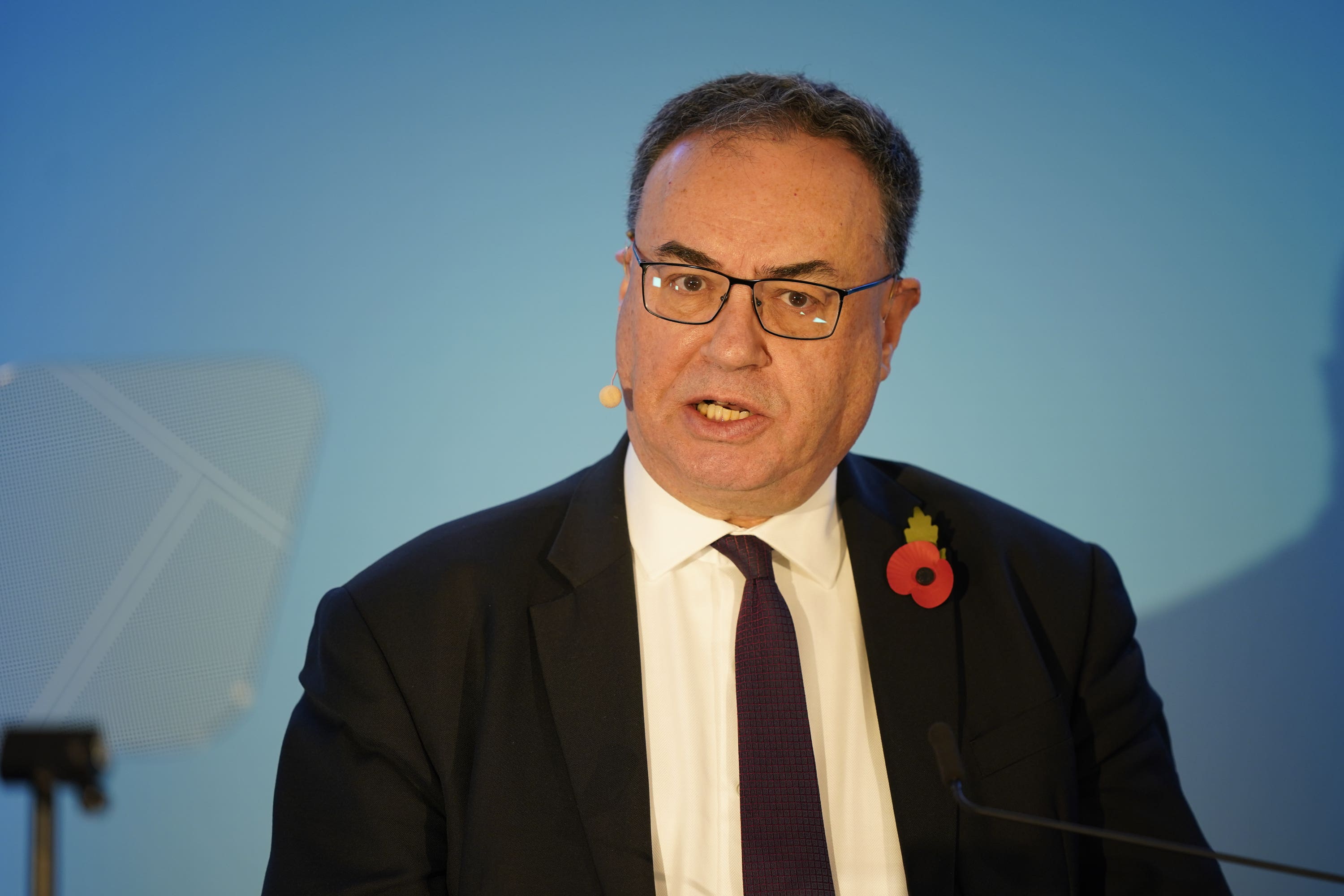UK economy shrank faster than expected in October, new data reveals
Economists warn ‘spectre’ of recession hanging over Britain, as GDP falls 0.3 per cent
Your support helps us to tell the story
From reproductive rights to climate change to Big Tech, The Independent is on the ground when the story is developing. Whether it's investigating the financials of Elon Musk's pro-Trump PAC or producing our latest documentary, 'The A Word', which shines a light on the American women fighting for reproductive rights, we know how important it is to parse out the facts from the messaging.
At such a critical moment in US history, we need reporters on the ground. Your donation allows us to keep sending journalists to speak to both sides of the story.
The Independent is trusted by Americans across the entire political spectrum. And unlike many other quality news outlets, we choose not to lock Americans out of our reporting and analysis with paywalls. We believe quality journalism should be available to everyone, paid for by those who can afford it.
Your support makes all the difference.The UK economy shrank even faster than previously thought in October, as Britain’s manufacturing and construction sectors were hit by worse-than-expected slumps.
Economists said it would be premature to say the country is headed into a recession – but warned that the “spectre” would hang over Britain for the foreseeable future.
It comes as the Bank of England prepares to keep interest rates at 5.25 per cent on Thursday, in a bid to get on top of stubbornly high inflation without tipping Britain into recession.
Gross domestic product (GDP) fell by 0.3 per cent during October, down from 0.2 per cent growth in September, the Office for National Statistics (ONS) said. Experts had expected GDP to contract by just 0.1 per cent.
Labour’s shadow chancellor Rachel Reeves said the data showed that Rishi Sunak’s government had “failed” to grow the economy as promised.
“Rishi Sunak ends the year having failed to deliver on his own promise to grow the economy. Economic growth is going backwards,” Ms Reeves said – accusing Mr Sunak of being “too weak to deliver for Britain”.
Chancellor Jeremy Hunt defended his policies and claimed it was “inevitable” that growth will be “subdued whilst interest rates are doing their job to bring down inflation”.
Pointing to his tax cuts, Mr Hunt added: “But the big reductions in business taxation announced in the autumn statement mean the economy is now well placed to start growing again.”

Thomas Pugh, at consulting firm RSM UK, said that a drop-off in inflation and rising wages would likely boost the economy in the last two months of the year. But he said the big picture was “still one of a stagnating economy”.
The expert added: “We doubt growth will materially pick up until towards the end of next year, meaning that the spectre of recession will hang over the UK economy for a long time yet.”
Federation of Small Business chair Martin McTague said that the figure was “disappointing news” that “will leave many feeling flat”.
The worse-than-expected reading comes as the Bank of England is to set a new interest rate on Thursday. Decision-makers were already unlikely to raise interest rates at this week’s meeting.
The ONS data will give them even more certainty that rates are high enough to be “restrictive” and dampen the economy. They are also aware that the full effect of their recent spate of interest rate hikes has not yet been felt.
People who have taken out new mortgages, have had to remortgage their properties or who are on a tracker mortgage will have seen their monthly payment rise significantly.
About five million mortgages will still be up for renewal by the end of 2026. So far these people have avoided the hit of rising interest rates.
But the rate-setters on the Monetary Policy Committee (MPC), including Bank governor Andrew Bailey, have stressed repeatedly that it is far too soon to talk about cutting rates.

“October’s drop in GDP adds to the growing list of recent downside data surprises, but we still doubt that the MPC will change its tune and signal its willingness to cut Bank rate next year as soon as this week’s meeting,” said Samuel Tombs of Pantheon Macroeconomics.
While the larger services sector contributed the most to the slowdown in October, the production sector fell the most rapidly. It saw output down by 0.8 per cent due to a slowdown in manufacturing caused in part by the computer, electronics and optical products sectors. The construction sector was hit by one of the rainiest Octobers in the last 200 years.
Suren Thiru, economics director at the Institute of Chartered Accountants in England and Wales, said the latest GDP figures “put the prime minister’s target to get the economy growing [by the end of the year] in jeopardy”.
No 10 claimed the UK economy had “overperformed”, pointing to long-term figures over the past decade – but did not rule out the possibility of a recession in the year ahead.
Mr Sunak’s spokesman said: “We’d never speculate on future predictions. We have outperformed in recent months and years – we have grown faster than France, Germany, Italy and Japan since 2010.”
Asked if Mr Sunak believed in his promise to grow the economy and the other of his five pledges, the No 10 official said: “The prime minister remains committed to the five pledges.”
Some Tories have urged Mr Sunak to find a better system of economic forecasting in an effort to cut taxes further. Conservative MP Greg Smith asked at PMQs: “Will he commit to finding a better system of financial modelling so we can get taxes lower?”
Mr Sunak defended the Office for Budget Responsibility (OBR), saying it had brought “greater transparency and independence to the forecasting on which government policy is based”.

Join our commenting forum
Join thought-provoking conversations, follow other Independent readers and see their replies
Comments